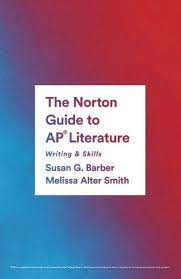Frustration
Here’s a frustration I grappled with earlier in the year and a quick-fix solution.
Sometimes, I would work to make a lesson engaging and dynamic and with it came all this excitement to teach it. But that faded fast because when I was in the moment, I recieved nothing in return.
There were a few manifestations of what that “nothing” looked like. Sometimes a student would ask, “Is this being graded?” (eye roll), and all of a sudden, the center could not hold and the momentum collapsed. At other times, students treated the bathroom pass like a game of capture the flag. As soon as one student returned, three more would compete to go next. Any flow I had was now flushed down the toilet. Or, just as we started reading a text, students had the phone itch, reaching into the pouches of their hoodies or fake-look for a writing utensil in their backpack just to scan their notification.
All that hope, upended in seconds.
This wasn’t an every-day occurrence, but it happened enough this fall that it lead to some self reflection. Was I getting old and unrelatable? Had technology and COVID changed students? Were students motivated only by grades and not learning?
STUDENT MOTIVATION
If motivation is a fundamental energizing behavior that allows us to pursue goals and meet our needs, I had to wonder in those moments what were my students’ goals?
The long-time Michigan State basketball coach, Tom Izzo, once explained the difference between college players today and those from 30 years ago. He said that three decades ago, a player would run through a brick wall for a coach. Today, that is not so much the case. In his opinion, it is not automatic. Today, players need to know why they are running through a brick wall first, then they will do it.
And that sums up the flaw in my approach. I was so excited to teach the lesson, that I assumed passion and enthusiasm were a given. The problem was that my students did not understand why the lesson would help them meet a need or achieve a goal. I loved the literature and assumed my students would too. I skipped past student motivation and went right into delivery.
The quick fix was to return to my 3-5 minute mini sermons.
SERMONS
Sermons are talks or speeches on conduct or duty. They not only provide us with a glimpse of who we can be with a little improvement, but they also allow us to peer into the heart of the one giving the sermon. We understand the message and the messenger.
We see mini sermons all the time in literature.
Some are formal, like Father Mapple in Moby Dick, who stands at the pulpit, and orates a sermon with a simple theme: “If we obey God, we must disobey ourselves; and it is in this disobeying ourselves, wherein the hardness of obeying God exists.”
At other times, we see the effects of living with the sermon, like in The Grapes of Wrath. Robin Bates spotlights this on his blog Better Living Through Beowulf:
Casy learns that we are not discrete individuals but are part of something bigger. The ultimate goal is not a physical land of milk and honey but a union of all humankind… Tom Joad is his Apostle Paul who will spread the gospel to all nations:
“Hm-m,” he said. “Lookie, Ma. I been all day an’ all night hidin’ alone. Guess who I been thinkin’ about? Casy! He talked a lot. Used ta bother me. But now I been thinkin’ what he said, an’ I can remember—all of it. Says one time he went out in the wilderness to find his own soul, an’ he foun’ he didn’ have no soul that was his’n. Says he foun’ he jus’ got a little piece of a great big soul. Says a wilderness ain’t no good, ’cause his little piece of a soul wasn’t no good ‘less it was with the rest, an’ was whole. Funny how I remember. Didn’ think I was even listenin’. But I know now a fella ain’t no good alone.”
Gatsby sermonizes to Nick about our obligation to the past. Elizabeth Bennet provides lively sermons to friends and family on all matters love.
These sermonizing moments help to understand the conduct of some of my favorite literary chatacters.
Didn’t my students deserve to understand the work they were asked to complete?
They needed to know why they were going to run through a brick wall. They needed to know what was waiting for them on the other side. And they needed to know what it meant to me if they did.
I started incorporating these mini-sermons in my classes a few months ago. I’ve done it before but just got out of the habit. I talk about the importance of art in our lives. I have them consider a well-composed sentence, and its superiority to its alternative. I open up about myself and share how a work’s theme has impacted my life and why I am rooting against certain characters.
They often start like this:
- Today, I want to teach you about __________________ because of ___________.
- The reason why this is important is because _________________________.
- This is valuable not only for the time we have in class, it can enrich your life by _____________.
Last week I began a class by saying, “Today I am going to teach you about Tom Buchanan. While he is important to the plot of the novel, it is also important to recognize how he operates, what he preys upon, and the destruction that is left in his path. The Tom Buchanan’s of this world exist beyond the pages of The Great Gatsby and we need to see him on the page so we can also spot him in our lives.
This week many of my sermons will focus on how the changes the Romantic poets experienced during the industrial revolution are not that different from the ones we are experiencing during the digital revolution.
Sometimes, in these moments, it feels like I have them in the palm of my hand once again.












